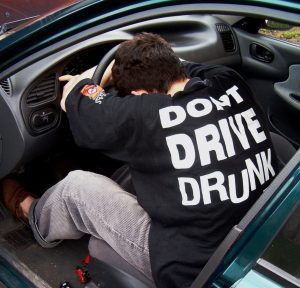 Illinois law places severe restrictions on the ability of people convicted of a felony from legally changing their names. Illinois law is among the strictest in the United States for convicted felons seeking to change their names. The Illinois Secretary of State allows Illinois license owners to put their gender identity on their licenses. Under current Illinois law, felons convicted of a crime that requires that individual to be placed on a state registry, such as a Sex Offender Registry, are barred from ever changing their name. The lifetime ban also applies to people convicted of Murder, Arson, and Identity Theft. Anybody convicted of any other felony has to wait at least 10 years after the completion of their sentence before they can petition the court to legally change their name.
Illinois law places severe restrictions on the ability of people convicted of a felony from legally changing their names. Illinois law is among the strictest in the United States for convicted felons seeking to change their names. The Illinois Secretary of State allows Illinois license owners to put their gender identity on their licenses. Under current Illinois law, felons convicted of a crime that requires that individual to be placed on a state registry, such as a Sex Offender Registry, are barred from ever changing their name. The lifetime ban also applies to people convicted of Murder, Arson, and Identity Theft. Anybody convicted of any other felony has to wait at least 10 years after the completion of their sentence before they can petition the court to legally change their name.
For many years, efforts have been underway in Springfield to change the law to allow convicted felons to petition the court to legally change their names. The efforts have been led by the LGBTQ community in Illinois. People that have had gender-affirming surgery have been seeking to change Illinois law to reflect their current gender. Supporters of the legislation also point to the plight of victims of human trafficking who want to change their name to make it more difficult for their traffickers to find them.
A bill that would drastically change current Illinois Law for convicted felons who are seeking to change their name is currently sitting on the desk of Illinois Governor J.B. Pritzker after being approved by the Illinois Senate on January 10. The bill passed the Illinois House with bipartisan support in 2021. The Bill would lift the lifetime ban for those convicted of the certain crimes, such as Identity Theft, and for those convicted of a crime that requires registration to a registry. For those convicted of any other felony, the 10-year waiting period is removed and people do not have to wait 10 years to apply for a change of name just because they have a felony conviction on their record. However, anyone convicted of a felony who wants to legally change their name will be required to convince a judge to let them do this before they can change their name. Anybody who had been the subject of the lifetime band will have to convince a judge to approve it and County prosecutors will be allowed to object to the petitions. In cases in which County Prosecutors are objecting to the name change petitions, the petitioners will be required to convince the Judge that they are changing their names because they are transgender, were legally married, were the victims of human trafficking, or have valid religious reasons for changing their names.
 Chicago Criminal Lawyer Blog
Chicago Criminal Lawyer Blog


 Last week, the Alliance Against Intoxicated Motorists released their annual survey of DUI arrests in Illinois. The Alliance Against Intoxicated Motorists conducts annual surveys of DUI arrests by the 700 police agencies in Illinois. The survey is funded by the Illinois Department of transportation. The survey gives us an understanding of where most DUI arrests happen and allows us to compare previous years to see any emerging patterns and trends involving DUI cases and DUI arrests.
Last week, the Alliance Against Intoxicated Motorists released their annual survey of DUI arrests in Illinois. The Alliance Against Intoxicated Motorists conducts annual surveys of DUI arrests by the 700 police agencies in Illinois. The survey is funded by the Illinois Department of transportation. The survey gives us an understanding of where most DUI arrests happen and allows us to compare previous years to see any emerging patterns and trends involving DUI cases and DUI arrests.
 This morning I met with a client who was charged with a
This morning I met with a client who was charged with a  A few weeks ago, I signed up a new DUI case in Rolling Meadows. The client is only 23 years old and this was his first DUI. The client’s car broke down on the way home from a friend’s house and he had to to pull his car over by the side of the road. After a short time, a police officer approached his car and started asking him questions. The officer asked my client to perform the Standard Field Sobriety Tests on the side of the road and the client declined to do so because he is recovering from ankle surgery and was worried that he would fail the tests. The officer asked the client to blow into a Portable Breath Device to determine whether he was good to drive, and the client complied with the request. The Portable Breath Test indicated that he was slightly over the legal limit. The officer informed my client that he would be taking him to the police station to prepare some paperwork. When my client arrived at the police station, he was asked to take a Breathalyzer Test and refused. The officer told my client that he would be taken to the hospital for a blood draw to determine what his Blood Alcohol Level was. The client has a fear of needles so he refused to go to the hospital. The officer told my client that if he did not take a Blood Test that he would be placed under arrest. Fearing that he would be arrested for refusing to take a Blood Test, my client agreed to go to the hospital and agreed to have his blood drawn. Even though the police did not have the blood results, they arrested him and charged him with a DUI anyway.
A few weeks ago, I signed up a new DUI case in Rolling Meadows. The client is only 23 years old and this was his first DUI. The client’s car broke down on the way home from a friend’s house and he had to to pull his car over by the side of the road. After a short time, a police officer approached his car and started asking him questions. The officer asked my client to perform the Standard Field Sobriety Tests on the side of the road and the client declined to do so because he is recovering from ankle surgery and was worried that he would fail the tests. The officer asked the client to blow into a Portable Breath Device to determine whether he was good to drive, and the client complied with the request. The Portable Breath Test indicated that he was slightly over the legal limit. The officer informed my client that he would be taking him to the police station to prepare some paperwork. When my client arrived at the police station, he was asked to take a Breathalyzer Test and refused. The officer told my client that he would be taken to the hospital for a blood draw to determine what his Blood Alcohol Level was. The client has a fear of needles so he refused to go to the hospital. The officer told my client that if he did not take a Blood Test that he would be placed under arrest. Fearing that he would be arrested for refusing to take a Blood Test, my client agreed to go to the hospital and agreed to have his blood drawn. Even though the police did not have the blood results, they arrested him and charged him with a DUI anyway. Arguably, the most common question I am asked by clients. This happens all the time with Domestic Battery cases. While it’s always better to have a victim, or complaining witness, that is willing to cooperate with the defense, it does not mean that the case will be dismissed or that the Defendant is guaranteed to win their case. Let me explain.
Arguably, the most common question I am asked by clients. This happens all the time with Domestic Battery cases. While it’s always better to have a victim, or complaining witness, that is willing to cooperate with the defense, it does not mean that the case will be dismissed or that the Defendant is guaranteed to win their case. Let me explain. The best evidence that the police and the prosecutors have to prove a DUI in Court is a Breathalyzer Test. While it is not necessary for the State to have a breathalyzer test to prove you guilty of a DUI in Court, it is the best evidence that the state can have in a DUI case. I frequently talk to clients who do not understand what a Breathalyzer Test is and how easy it is to get a result that could make it very difficult to fight a DUI case. I want to discuss some facts about the Breathalyzer Test and eliminate some common misunderstandings.
The best evidence that the police and the prosecutors have to prove a DUI in Court is a Breathalyzer Test. While it is not necessary for the State to have a breathalyzer test to prove you guilty of a DUI in Court, it is the best evidence that the state can have in a DUI case. I frequently talk to clients who do not understand what a Breathalyzer Test is and how easy it is to get a result that could make it very difficult to fight a DUI case. I want to discuss some facts about the Breathalyzer Test and eliminate some common misunderstandings. I frequently speak to clients who have been arrested for a DUI. After the initial shock of being arrested wears off, most DUI clients start to think about the future and the possible implications of having a DUI. As with most things, most people do not think about what could happen to them if they picked up a DUI until it actually happens to them. When I receive those calls, most clients are initially worried about whether they will be going to jail. After I explain to them that jail is usually not an option for a first time DUI, the next question is whether they will lose their license as a result of the DUI. I want to take an opportunity to talk about how a DUI can affect your drivers license.
I frequently speak to clients who have been arrested for a DUI. After the initial shock of being arrested wears off, most DUI clients start to think about the future and the possible implications of having a DUI. As with most things, most people do not think about what could happen to them if they picked up a DUI until it actually happens to them. When I receive those calls, most clients are initially worried about whether they will be going to jail. After I explain to them that jail is usually not an option for a first time DUI, the next question is whether they will lose their license as a result of the DUI. I want to take an opportunity to talk about how a DUI can affect your drivers license. I often have to catch myself when I’m talking to my clients about their criminal cases. As lawyers, we sometimes use terminology that while it may be common for us, is foreign to most people who are not involved in the criminal justice system every day like we are. The other day I was talking to a client about the status of their criminal case and I mentioned to the client that I was ‘waiting for Discovery’. I didn’t give the terminology a second thought, assuming that the client knew what I was talking about. However, the client made it very clear that they did not understand what I was saying and I realized that most clients probably feel the same way. I want to take this opportunity to describe what Discovery is and why it sometimes takes a long time time for Discovery to be complete.
I often have to catch myself when I’m talking to my clients about their criminal cases. As lawyers, we sometimes use terminology that while it may be common for us, is foreign to most people who are not involved in the criminal justice system every day like we are. The other day I was talking to a client about the status of their criminal case and I mentioned to the client that I was ‘waiting for Discovery’. I didn’t give the terminology a second thought, assuming that the client knew what I was talking about. However, the client made it very clear that they did not understand what I was saying and I realized that most clients probably feel the same way. I want to take this opportunity to describe what Discovery is and why it sometimes takes a long time time for Discovery to be complete. After 28 years of practicing criminal law, it is very rare to hear a client tell me something about a criminal case that I never heard before. Throughout the years, I have handled thousands of DUI cases. While every case is unique, there are certain common elements to certain criminal cases. This is especially true with most DUI cases. While it is common for me to speak with clients who were arrested for a DUI, for the clients I am speaking to, this is a unique and scary experience for them. Part of my job as a criminal defense lawyer is to listen to the client and guide them through the process so they understand what is happening and how the criminal justice system works. In this post, I want to explain to my readers what a typical DUI arrest looks like.
After 28 years of practicing criminal law, it is very rare to hear a client tell me something about a criminal case that I never heard before. Throughout the years, I have handled thousands of DUI cases. While every case is unique, there are certain common elements to certain criminal cases. This is especially true with most DUI cases. While it is common for me to speak with clients who were arrested for a DUI, for the clients I am speaking to, this is a unique and scary experience for them. Part of my job as a criminal defense lawyer is to listen to the client and guide them through the process so they understand what is happening and how the criminal justice system works. In this post, I want to explain to my readers what a typical DUI arrest looks like.